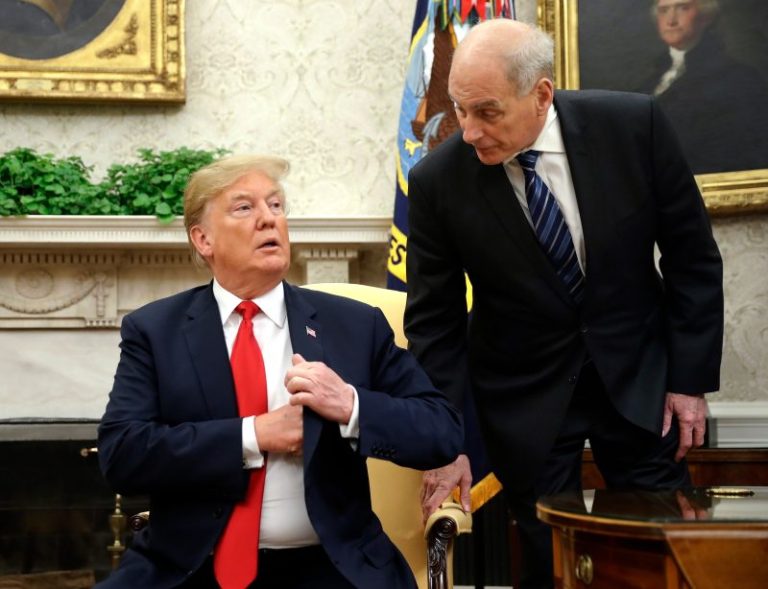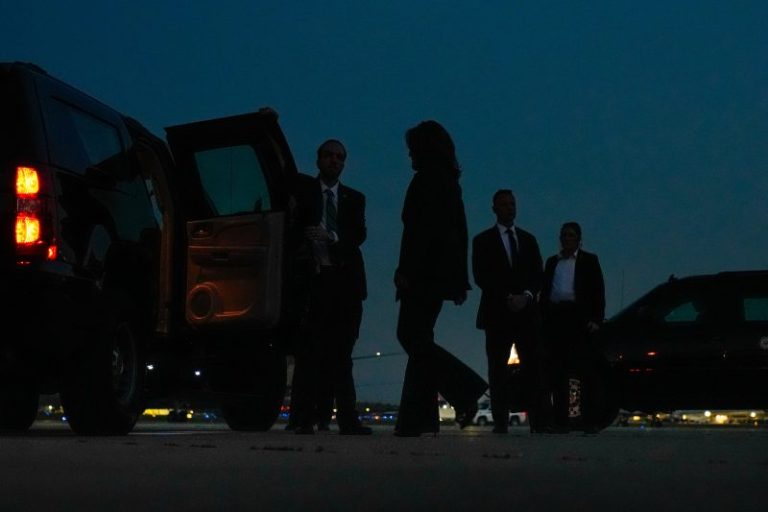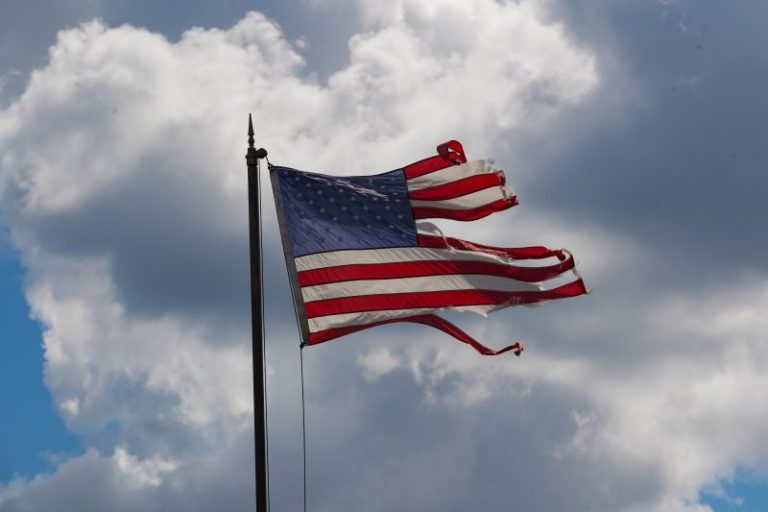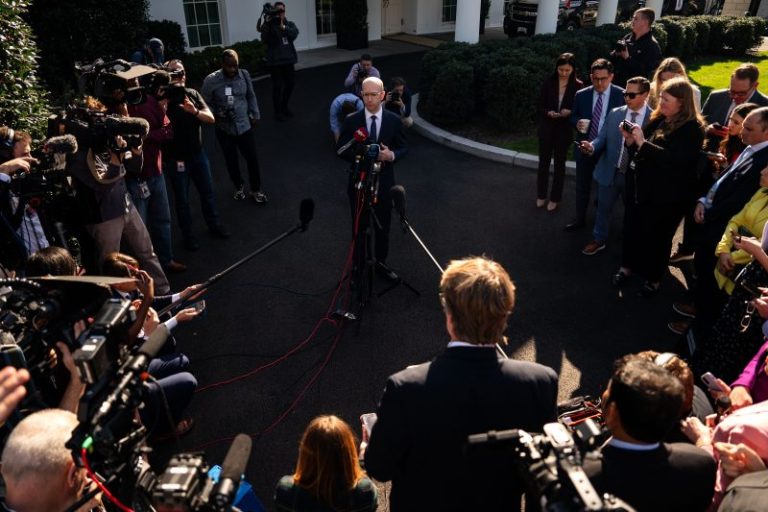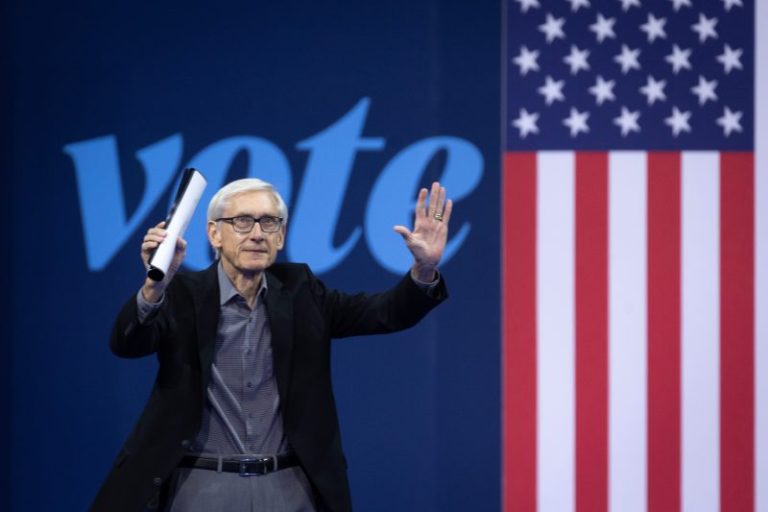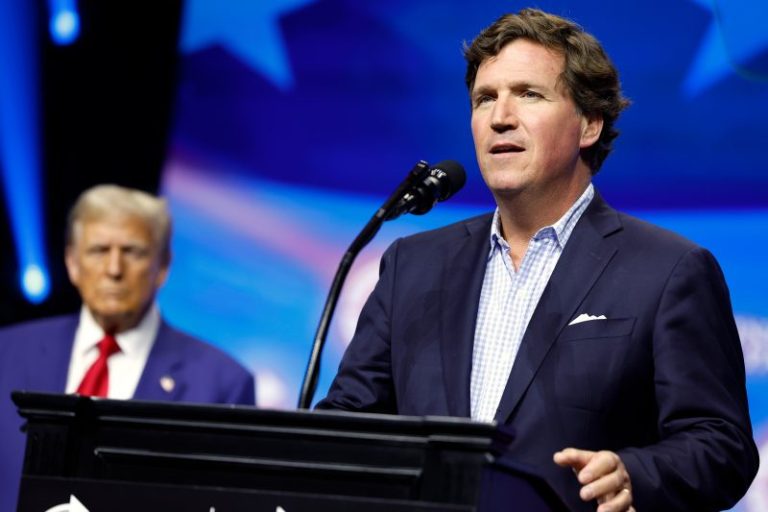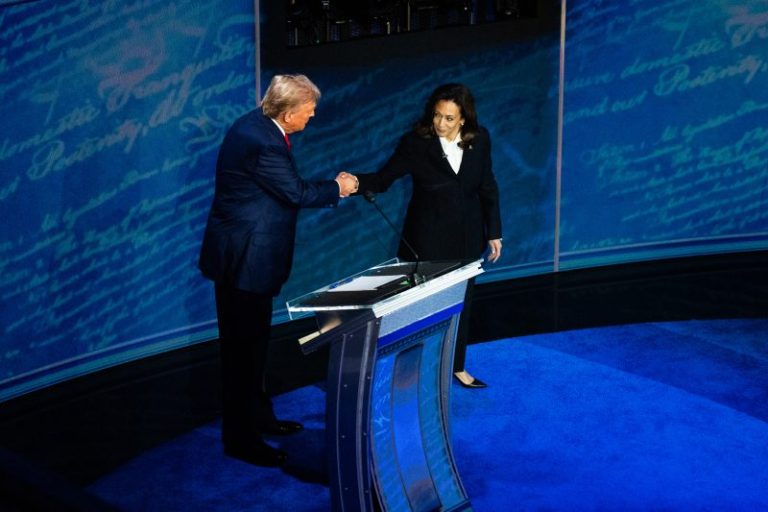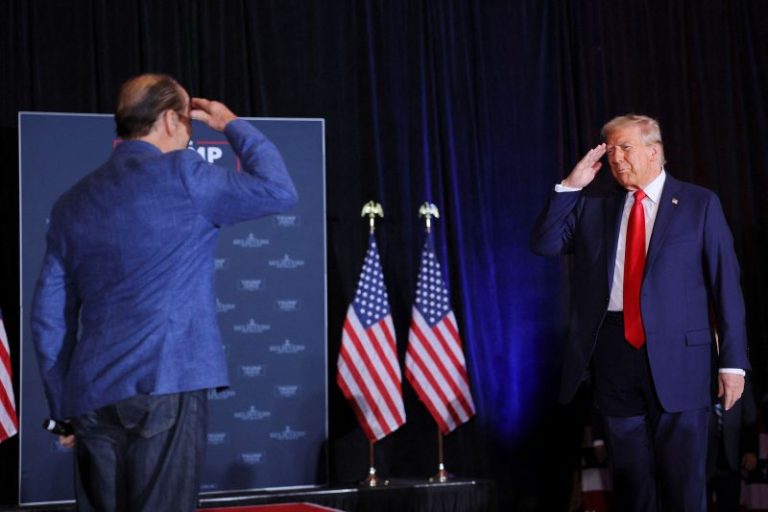John F. Kelly, former president Donald Trump’s longest-serving White House chief of staff, said in a new interview that his former boss met the definition of a fascist, would govern like a dictator if elected again, had no empathy and did not understand the Constitution or the rule of law.
A suspected drunk driver going the wrong way on a highway in Milwaukee came close to Vice President Kamala Harris’s motorcade on Monday night, officials said.
A video obtained by WISN 12 News showed a white SUV traveling westbound in the eastbound lanes of Interstate 94 around 8:30 p.m. Monday, passing several cars in Harris’s motorcade, until it was eventually stopped by Milwaukee County sheriff’s deputies.
Vice President Kamala Harris on Wednesday offered brief public remarks addressing comments made this week by former White House chief of staff John Kelly, who served in that position under Donald Trump.
“This is a window into who Donald Trump really is from the people who know him best, from the people who worked with him side-by-side in the Oval Office, in the Situation Room,” Harris said. “And it is clear from John Kelly’s words that Donald Trump is someone who, I quote, ‘certainly falls into the general definition of a fascist.’ ”
In the final three weeks of the presidential race, former president Donald Trump and his advisers have attacked one particular foe more than three dozen times: a little-known Kamala Harris aide named Ian Sams.
The feud with Sams, a bespectacled 35-year-old longtime foot soldier in Democratic politics, started when Sams did what few Democrats are willing to do: He went on Fox News.
MADISON, Wis. — Early voting kicked off in this battleground state this week with computer delays and long lines.
Voters waited as long as three hours Tuesday to cast ballots in West Bend, a city of about 32,000, city clerk Jilline Dobratz said. State computer issues reared up again Wednesday, and by midafternoon, voters had to wait about 90 minutes to vote in the community 40 miles northwest of Milwaukee, she said. Residents were not used to anything like it.
A former deputy Palm Beach County sheriff who fled to Moscow and became one of the Kremlin’s most prolific propagandists is working directly with Russian military intelligence to pump out deepfakes and circulate misinformation that targets Vice President Kamala Harris’s campaign, according to Russian documents obtained by a European intelligence service and reviewed by The Washington Post.
Sister Stephanie Schmidt had a hunch about what her fellow nuns would discuss over dinner at their Erie, Pennsylvania, monastery on Wednesday night.
The day before, a Republican operative in the battleground state falsely suggested to his nearly 58,000 followers on X that no one lived at the monastery and that mail ballots cast from there would be “illegal votes.” Cliff Maloney, who hired 120 people to go door-to-door across Pennsylvania urging Republican voters to return their mail ballots, wrote on X that one of those workers had “discovered” an Erie address where 53 people were registered to vote but “NO ONE lives there.”
DULUTH, Ga. — Former Fox News host Tucker Carlson warmed up the crowd at Donald Trump’s rally here Wednesday night with a dark metaphor, bashing Vice President Kamala Harris and declaring that “dad” was coming home to mete out discipline.
“He’s pissed!” Carlson said to extended cheers. “Dad is pissed. … And when dad gets home, you know what he says? ‘You’ve been a bad girl. You’ve been a bad little girl, and you’re getting a vigorous spanking right now.’”
Both of the major-party presidential candidates describe the election two weeks from now as determinative for the future of the nation. Many or most of their supporters, it seems safe to say, concur with those assessments: that America is at a fork in the road, and voters will determine which route the nation takes.
Before former president Donald Trump addressed the audience at a meeting of religious activists in North Carolina on Monday, his son offered some thoughts.
After suggesting that his father survived the attempt on his life earlier this year thanks to divine intervention, Eric Trump told the audience that “we need God in our life. We need God in society. We need children to respect God. We need God in our schools. And if [Vice President] Kamala Harris won’t say it, I will: We love God, and we will always be a nation of faith.”

